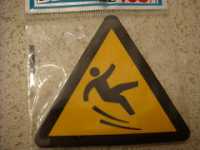
04 Feb Exercise Prevents Falls
MedicalResearch.com Interview with:
 Cathie Sherrington FAHMS
Cathie Sherrington FAHMS
Professor, NHMRC Senior Research Fellow
Institute for Musculoskeletal Health
The University of Sydney
MedicalResearch.com: What is the background for this study? What types of exercise were tested or indicated?
Response: Falls are a very common problem with at least one in three people aged 60+ falling each year. This review included all types of exercises delivered to people aged 60+ in the general community i.e., not those living in supported accommodation and not among people with particular health conditions such as a stroke or Parkinson’s disease.
MedicalResearch.com: What are the main findings?
Response: Overall, this review found strong evidence that exercise prevents falls. We found high certainty evidence that programmes that mainly involve balance and functional exercises reduce falls, while there was less certainty about programmes that include multiple exercise categories (most commonly balance and functional exercises plus resistance exercises). Tai Chi may also prevent falls but there is uncertain evidence on the effectiveness of resistance exercises (without balance and functional exercises) including dance or walking.
Therefore, according to current evidence, particularly effective exercise programmes focus on balance and function (i.e., the ability to do daily tasks such as standing up from a chair and climbing stairs), are primarily undertaken while standing, and can also include strengthening exercises with weights. The programmes in the trials were led by health professionals or trained exercise providers. This expert involvement enables tailoring of exercise and monitoring of responses. Exercises need to able to be easy enough to be performed safely but challenging enough to elicit benefits. Some effective programmes were undertaken in group classes and others involved teaching people to safely exercise at home
MedicalResearch.com: What should readers take away from your report?
Response: The importance of exercise in the prevention of falls in now clear. Health and community care systems now need to work out how to provide and/ or promote such exercises and older people need to work out how to ongoing, appropriate exercise into their daily routines.
MedicalResearch.com: What recommendations do you have for future research as a result of this work?
Response: We still need to know more about the impact of certain types of activities on falls, particularly dance, yoga and resistance training.
We need to know more about the impact of exercise on fractures and other falls outcomes.
MedicalResearch.com: Is there anything else you would like to add?
Response: Several authors (CS, AT, LC, SH, KH and SL) are currently running trials of fall prevention interventions. These trials are all funded by national grant agencies.
No review author was involved in study selection or processing of any trials in which they were or are involved.
Funding for the review was received from the National Institute for Health Research (NIHR) via Cochrane Infrastructure funding to the Cochrane Bone, Joint and Muscle
Trauma Group, Australian National Health and Medical Research Council fellowships contributed to the salaries of CS and AT, and NIHR Cochrane Reviews of NICE Priority scheme.
Citation:
[wysija_form id=”3″]
[last-modified]
The information on MedicalResearch.com is provided for educational purposes only, and is in no way intended to diagnose, cure, or treat any medical or other condition. Always seek the advice of your physician or other qualified health and ask your doctor any questions you may have regarding a medical condition. In addition to all other limitations and disclaimers in this agreement, service provider and its third party providers disclaim any liability or loss in connection with the content provided on this website.
Last Updated on February 4, 2019 by Marie Benz MD FAAD
